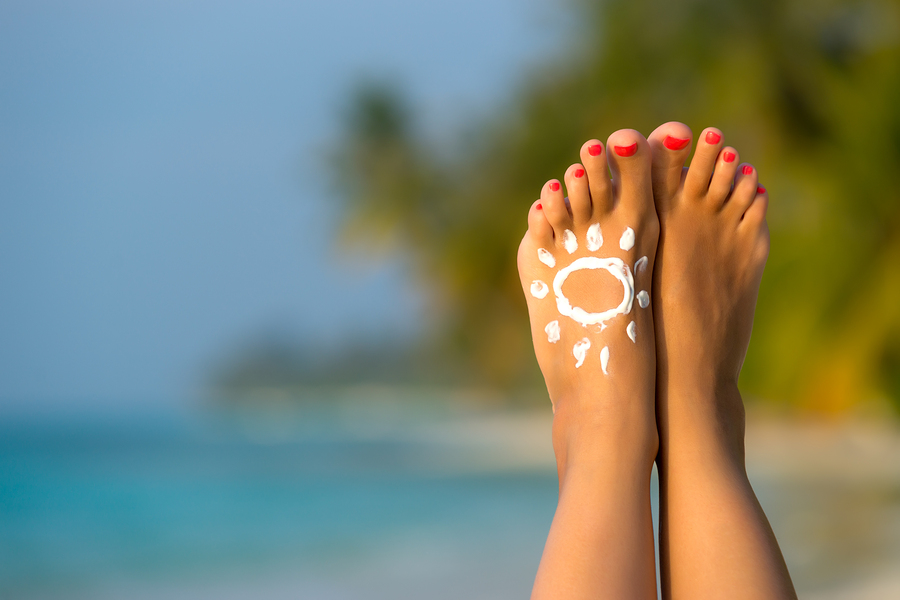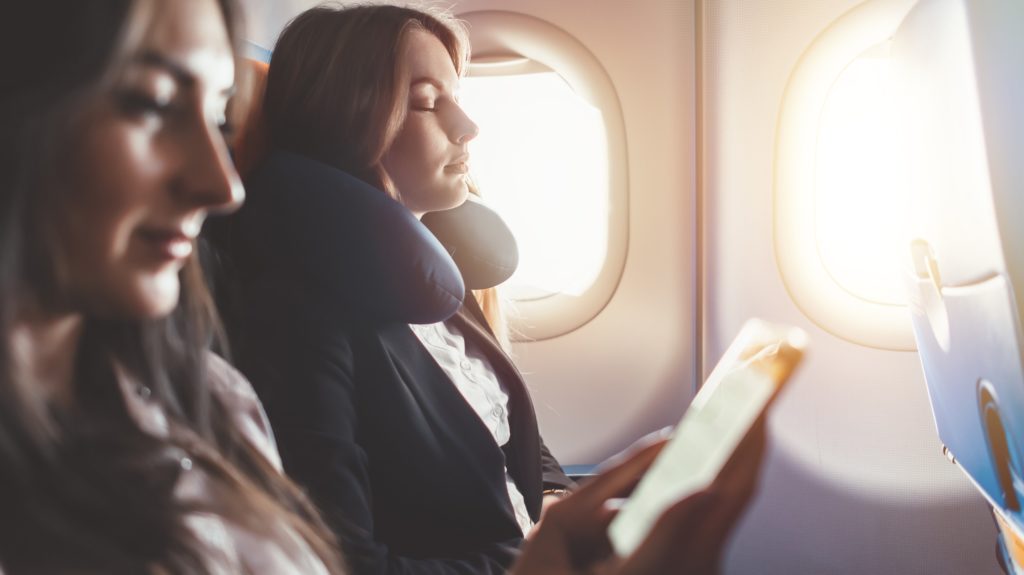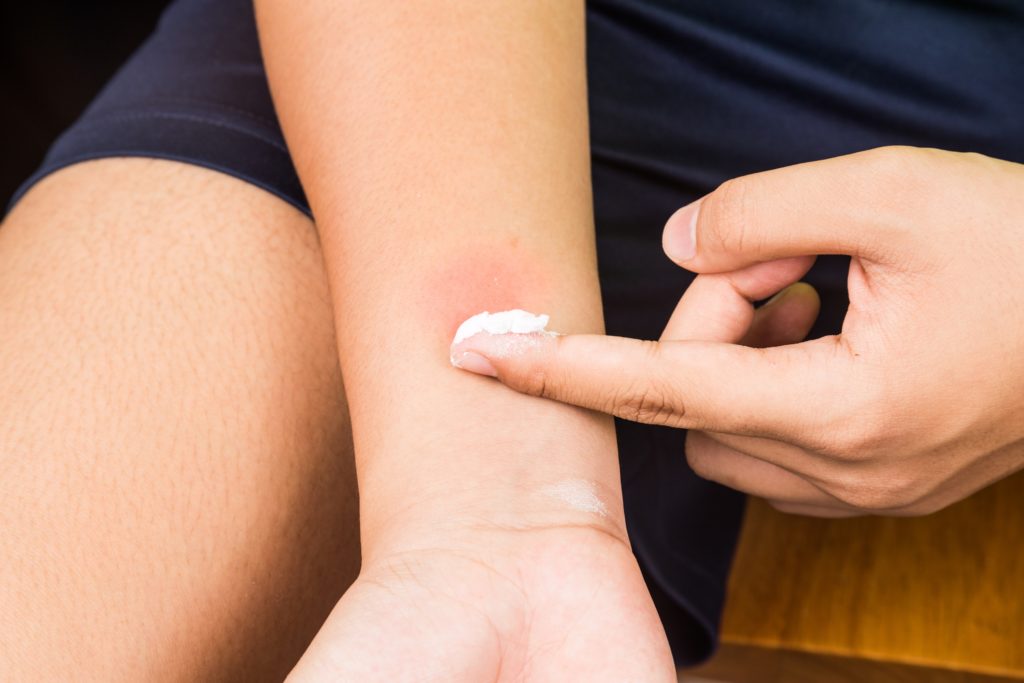7 healthcare essentials you should always pack in your holiday suitcase
We ask health experts to share their must-have items for your next sunny getaway
Now that summer has finally arrived, many of us are clocking off from work and jetting off to sunnier climates, for a well-deserved break by the beach or pool.
When it comes to packing for a summer holiday however, we all remember the wardrobe essentials – bikinis, flip-flops and beach cover-ups. But what about first aid and healthcare essentials? From rehydration sachets and insect repellent, to decent sun protection, planning for your health while you’re away can prepare you for any unfortunate holiday mishaps – and we all know a painful case of whole-body sunburn can make or break your precious time away.
Here, we asked a range of health experts to tell us about the products they think every traveller should have in their suitcase….
1. Beat the burn with sun protection

When it’s sunny outside, it’s tempting to throw on your swimmers and head straight for the pool, but spare a thought for your unprotected skin.
While an appropriate amount of sun is good for us (as it creates vitamin D), too much time in the sun’s rays can cause sunburn, skin cancer and premature ageing – so protecting your skin is paramount.
LloydsPharmacy pharmacist Matt Courtney-Smith advises: “Sun protection is essential, and you should wear it every day to help protect against UV rays, even when the sun isn’t out.”
When buying sunscreen, he suggests looking for a factor of at least 15 to protect against UVB and at least four-star UVA protection.
“Besides UVA and UVB rays, infrared-A radiation within the sun’s rays can also cause damage to the skin in a similar way to that of UV radiation,” he adds. “There are sun creams available that provide protection against UVA, UVB and Infrared-A radiation.”
If you are travelling by plane, remember to pack travel-sized sun protection, as liquids can be no more than 100ml.
A further tip? “You should check that your sun cream is within date, and you shouldn’t use sun cream which is over two to three years old,” Courtney-Smith adds.
2. Ease achy joints with natural pain relief
“A long journey which restricts movement can cause pain, and when it starts during travel this can become very uncomfortable,” says GP Dr Paul Stillman.
While frequent movement is important – like getting up and stretching your legs on an aeroplane – sometimes this is easier said than done. Especially if you’re trapped in a window seat next to a couple of snoozing passengers.
Dr Stillman says: “The sensation of increasing pain when you’re unable to do anything about it is unpleasant, so keep appropriate medication with you and even anticipate the journey by taking a dose before the start; pack any you need in your hand luggage and check if you need a doctor’s letter [before flying].”
You could also try a natural pain relief product like FlexiQule Natural Joint Support (£16.99, LloydsPharmacy), a joint care supplement containing the active ingredients gingerol and boswellia, which may be helpful for reducing inflammation.
3. Treat travel tummy with rehydration sachets
It’s hard to relax on holiday when you’re constantly running to the toilet, but stomach ache and digestive upsets can often hit travellers – usually because they’re exposed to unfamiliar food and germs.
Courtney-Smith explains: “Diarrhoea is one of the most common illnesses to experience when travelling, so much so that you may have heard it referred to as ‘Travellers’ Diarrhoea’.
“It can be caused by a number of germs, the most common being E.coli and salmonella (found in contaminated foods). It can also be caused by a parasite such as Giardia, which is found in contaminated water.”
Salts and fluids that are essential to the body’s healthy functioning are lost when you experience diarrhoea, so Courtney-Smith says it’s important to drink water mixed with rehydration sachets, which replace any lost salts and electrolytes.
4. Beat jet lag with a sleep supplement
 We all know that jet lag is the worst. You arrive in paradise, only to spend the first few days struggling to keep your eyes open.
We all know that jet lag is the worst. You arrive in paradise, only to spend the first few days struggling to keep your eyes open.
Sleep expert Dr Nerina Ramlakhan suggests it’s a case of mind over matter, believing that a little self-suggestion can go a long way. “Tell yourself that you’ve woken up, you’ve slept and you’re going to feel fine and have a good day. This way you’re less likely to see any negative impacts,” she says.
“There are techniques that can be used to get back to sleep, including taking a supplement such as Benenox Overnight Recharge (£9.99, Boots), which can help settle your nervous system,” she adds. “With the right approach, support and techniques, you should be able to effortlessly glide back into your sleep.”
5. Treat your feet with dry heel balm
“Wearing thin-soled, unsupportive shoes like summery flip-flops creates stresses on the foot that increases the creation of hard skin,” podiatrist Emma Supple warns.
Wearing mules or slingback shoes can also create a ‘slapping’ of the feet onto the shoes, that again creates calluses and dry, hard skin.
“Keeping skin well-moisturised with the daily application of a good quality urea-based foot balm is a really great habit to get into because your skin is a marvel and when well nourished, can fix its own problems.
“It is damaged skin, infected skin and under-pressure skin that causes painful areas, whether that is in the form of blisters, corns or calluses,” adds Supple. “Keeping skin well-nourished makes a big difference.”
6. Manage bug bites with antihistamine cream
 Although not usually serious, insect bites are a nuisance and can cause itchy, sore skin.
Although not usually serious, insect bites are a nuisance and can cause itchy, sore skin.
“Bites can cause a range of symptoms, including a red, swollen lump on the skin and itchiness,” explains Courtney-Smith. “Some people may have a mild allergic reaction to a bite, and this can cause it to become swollen and painful.”
In these cases, he advises you seek advice from your pharmacist, and arrange a GP appointment if your pharmacist recommends.
“For milder symptoms, an antihistamine creams (such as Anthisan Bite and Sting Cream, £3.99, LloydsPharmacy) can help soothe itchiness caused by bites and may also help to reduce swelling around the area.”
7. Appropriate travel insurance
OK – technically not an item to ‘pack’ in your suitcase, but travel insurance should still feature on your holiday medical must-haves.
It’s important to arrange insurance before you leave – being sure to declare any pre-existing health conditions/illnesses/surgery, etc – so you don’t get landed with a hefty medical bill should you get injured or fall ill while away and require assistance.
If you’re travelling in the EU, the NHS also advises applying for a European Health Insurance Card (EHIC) to cover the costs of any essential treatment while you’re abroad.
We have partnered with Staysure, the over 50s Travel Insurance experts in providing quality, award winning travel insurance specialising in pre-existing medical conditions.
- 20% discount for all our Silversurfers members*
- All pre-existing medical conditions considered*
- Emergency medical & repatriation up to £10 million**
- 24 hour medical emergency helpline
The Press Association
Latest posts by The Press Association (see all)
- 5 new books to read this week - November 23, 2024
- 3 easy Mary Berry recipes to make this season - November 22, 2024
- In Pictures: Party stalwart kept New Labour in touch with traditional supporters - November 21, 2024
- 6 easy indoor exercises to try this winter – and why they are good for you - November 19, 2024
- Martin Clunes: I can’t afford to retire – I’ve got too many horses - November 19, 2024





















